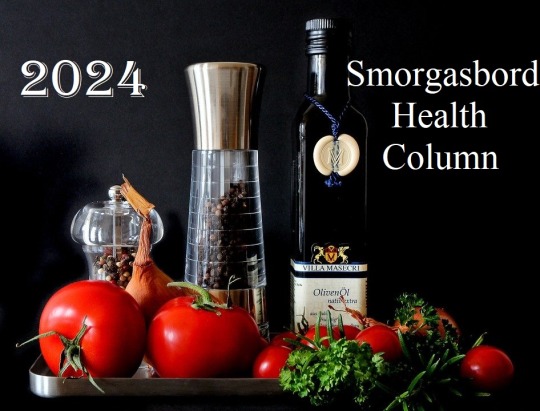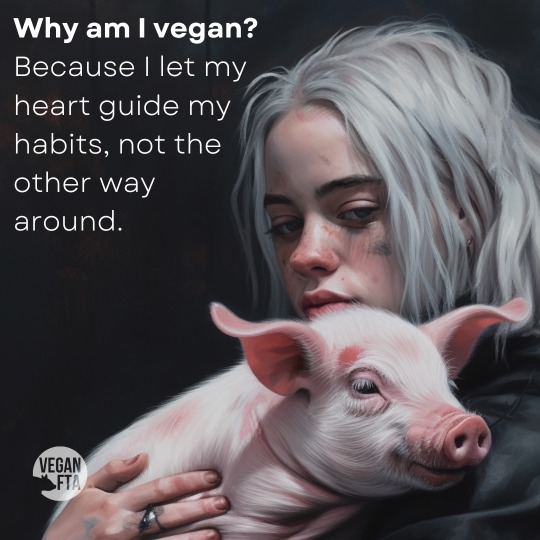#The Cholesterol Myths
Explore tagged Tumblr posts
Link
#balanceddiet#benefitsofeggs#bloodcholesterol#cholesterol#choline#cookingmethods#dietarycholesterol#eggwhites#eggyolkcalories#eggyolks#eggs#familialhypercholesterolemia#FAQ#HDL#healthydiet#healthyeating#hearthealth#howmanyeggsperweek#LDL#lutein#myths#nutrition#portioncontrol#saturatedfat#transfat#triglycerides#vitaminD#zeaxanthin
0 notes
Text
Egg Yolks SECRET Cholesterol Risks Revealed
The Hidden Cholesterol Risks of Egg Yolks: Separating Fact from Fiction Join me as I dive into the world of egg yolks and challenge myself to uncover the hidden cholesterol risks that might surprise you. Egg yolks have gotten a bad wrap over the years, and it’s time to set the record straight. Many of us have been led to believe that these golden centers are little cholesterol bombs waiting to…
#blood pressure#cholesterol#Cholesterol Risks#diet#Dietary Guidelines#Food Safety#food science#hdl#health tips#heart attack#heart disease#heart health#high blood pressure#high cholesterol#ldl#nutrition#Nutrition Myths#stroke#weight loss#wellness
0 notes
Text
What Is Dyslipoproteinemia, Why Does It Matter, & What Can We Do About It?
How I Managed Cholesterol Imbalances Naturally — A Quick Reflection on 30+ Years of Research and Experience Like a mindmap with every link, this short story reflects my three decades of research and personal experiences in understanding and managing dyslipoproteinemia without medication. I studied the impact of cholesterol imbalances on cardiovascular health and practiced steps for managing…
#Cardiovascular health#Cholesterol and diet myths#Cholesterol management#Cholesterol without statins#Cholesterol-rich diet paradox#dyslipoproteinemia#HDL cholesterol boost#Healthy cholesterol levels#Heart disease prevention tips#LDL vs HDL#Lipoproteins explained#Lowering LDL naturally#Natural heart health#Non-medication cholesterol control#Preventing heart attacks naturally
0 notes
Text
Smorgasbord Health Column 2024 – This Year’s Focus – Cardiovascular Disease – The Circulatory System – Cholesterol and Fat Myths Part Three, Vitamin K2 and Healthy Fats by Sally Cronin
The primary cause of death of men and women globally is cardiovascular disease, with heart attacks, coronary heart disease and strokes resulting in death in not just the elderly but increasing numbers under 75 years old and particularly in the 45 – 60 years age bracket. You can read the previous post in the series: Circulatory System – Why we need Cholesterol in our bodies Part 3 of Sally’s…

View On WordPress
0 notes
Text
Unraveling the Cholesterol Enigma: Navigating the 42% Higher Dementia Risk
Cholesterol, the often-misunderstood compound in our bodies, has been a topic of debate for decades. Recent studies have revealed a surprising connection – a 42 percent higher dementia risk linked to what we commonly refer to as ‘good cholesterol.’ In this article, we will unravel the complexities, explore the science behind the statistics, and understand what this means for our overall…

View On WordPress
#brain health#cholesterol#Cholesterol Management#Cognitive Health#Dementia Risk#Good Cholesterol#Health Myths#Lifestyle Choices#Medical Research#Scientific Studies
0 notes
Text
Exposing the Cholesterol Myth
This video is the best I have seen in explaining what cholesterol is, how it functions and why it’s necessary for health. 🤔
#pay attention#educate yourselves#educate yourself#knowledge is power#reeducate yourself#reeducate yourselves#think about it#think for yourselves#think for yourself#do your homework#do your research#do your own research#ask yourself questions#question everything#cholesterol#for your health#stay healthy#health tips#healthy living
550 notes
·
View notes
Text
A Midwestern Doctor has written another expose on a critical topic, one which affects hundreds of millions of people. What is the truth about “high blood pressure?”
The link to AMD’s original article is at the end. I have copied the article here with the exception of the embedded video, which didn’t copy. Please use the link to view it.
By A Midwestern Doctor:
Story at a Glance:
High blood pressure (hypertension) is increasingly common, with more people diagnosed each decade.
This is because the threshold for “high” blood pressure keeps getting lowered—despite no evidence existing that those levels reduce deaths.
Excessively low blood pressure carries significant risk. Likewise, many of the blood pressure medications have common and significant side effects doctors often don’t recognize.
In this article we will review the key aspects of each common blood pressure lowering medication and healthier ways to address elevated blood pressures.
Frequently, when you dig into medical myths, you discover that many of the dogmas that underlie a popular drug are actually sales slogans a marketing company created. For instance, cholesterol lowering statins are widely prescribed despite the fact lowering cholesterol does not prevent heart disease (in fact cholesterol protects you, so when it’s low, you more likely to die), statins don’t prevent death, and these drugs harm 20% of users (often severely).
In turn, since so many people have been severely harmed by The Great Statin Scam, more and more public figures, such as comedian Jimmy Dore and Robert F. Kennedy Jr. have begun to speak out against this.
Sadly, statins are not the only mass-prescribed drug that’s marketed on deceptive premises and frequently makes the problem it “treats” worse. For example:
•A chemical imbalance from low serotonin was never linked to depression (in fact patients who commit suicide are found to have elevated brain serotonin). •Acid reflux is due to too little acid in the stomach (as acidity gives the stomach’s opening the signal to close). However, in medical school, we are always taught it is due to too much acidity. •"Sleeping" pills are actually sedatives that block the restorative phase of the sleep cycle.
Each of these drugs in turn is immensely harmful to their users, but due to how effectively their myths were established (just like “safe and effective”) they continue to be used by large numbers of people and harm them.
In turn, when you look into blood pressure, a similar pattern emerges. As I showed in the first part of this series there are two huge issues with this:
33 notes
·
View notes
Text
But female fat is the subject of public passion, and women feel guilty about female fat, because we implicitly recognize that under the myth, women’s bodies are not our own but society’s, and that thinness is not a private aesthetic, but hunger a social concession exacted by the community. A cultural fixation on female thinness is not an obsession about female beauty but an obsession about female obedience. The nations seize with compulsive attention on this melodrama because women and men understand that it is not about cholesterol or heart rate or the disruption of a line of tailoring, but about how much social freedom women are going to get away with or concede.
— Naomi Wolf (1990) The Beauty Myth
#anti diet culture#naomi wolf#the beauty myth#radblr#radfem#radical feminism#radfem safe#radical feminist safe
17 notes
·
View notes
Text




























National Nut Day
Walnut, Hazelnut, Chestnut, Kola Nuts, Pine Nuts, Cashews, and more. There are more types of nuts in the world than most people realize, and many more of these are used for food than people suspect. Most people have a favorite kind of nut, most commonly involved in a favored kind of treat, but there are varieties and uses for nuts that are not commonly known.
Did you know that the flavor in your cola originally came from the Kola Nut? Or that Beech Nuts are commonly used as feed for animals? From ages past these high-fat, high-protein tree seeds have served as a major source of winter survival. Their natural ability to be stored and resist decay throughout the winter has made them a valuable resource for animals and humans alike.
What’s even more fascinating is that nuts have been revealed to have notable health benefits for those with a history of Coronary Heart Disease by lowering LDL cholesterol concentrations.
Learn about National Nut Day
National Nut Day has been created in order to encourage the public to consume healthier snack options. What is your go-to snack? A packet of crisps? A chocolate bar? We know that we are guilty of going for the unhealthy option more regularly than we should! So, why not use National Nut Day as the perfect opportunity to switch up your workplace snack? Some nuts, or a combination of nuts and dried fruit, is a healthy snack that will bring a lot of benefits.
The great thing about nuts is that there are so many different types and varieties to choose from. They come in many different sizes and shapes. You have everything from wrinkly walnuts to teardrop-shaped almonds, and so you are bound to find something that appeals to your taste buds.
We also love National Nut Day because nuts are not only delicious, but they are nutritious as well. Different nuts have different benefits. For example, almonds are rich in vitamin E, calcium, and protein. Another beneficial type of nuts is pistachios. They are high in fiber and they can help to reduce a rise in blood sugar after you have had a meal. Walnuts are also very popular, and they are a great source of omega-3 fatty acid. They can improve factors relating to heart health. Or, what about cashews? Cashews can improve blood pressure and they have a good nutrient profile too.
It is definitely a good idea to do a bit of research on your favorite nuts on Nuts Day too. You will be surprised by the different benefits that are associated with the variety of nuts out there. For a piece of food that is so small, it certainly packs a powerful punch when it comes to the different nutrients and benefits that it can bring.
History of National Nut Day
The Liberation Foods Company organized National Nut Day to celebrate the long and storied history of the nut, as well as to dispel some pernicious myths, such as the persistent idea that peanuts are a nut for instance. Nuts have been part of our diets for time out of mind, a trait we likely learned by following our fuzzy four footed brethren to their winter stores.
Since the inception of National Nut Day, great festivals have sprung up around the world to celebrate the versatility and great taste of the nut. There’s nothing like the rich smell of roast nuts to remind you that fall is here, and there is nothing to soothe a sweet tooth like a roast candied nut. Orange Glazed, Cinnamon, Sweet Chipotle are just a few of the common and more unusual flavors available in the world of the nut.
How to celebrate National Nut Day
The best way to celebrate National Nut Day is by treating yourself to your favorite nut related treat. Whether that’s a nut rich doughnut or a bag of your favorite roasted nuts, National Nut Day is an opportunity to indulge in the rich, nutty taste of.. well.. nuts!
There are often events held by vendors of nuts and their enthusiasts, where they share activities, introduce new types of nuts, and even share the best nut recipes. So get out there and improve your health and your winter with these shell-covered treasures.
There are plenty of other activities that you can do on National Nut Day. This includes making your favorite nut butter. A lot of people love nut butter, but why go to the store and purchase the premade version when you can probably make a much nicer version yourself? All you need to do is grab your favorite nut and throw them into a food processor. Most people will add some sweetener, and then all you need to do is blitz the combination. It really is as easy as that. Some people love their creation so much that they simply eat it out of the food processor. We won’t tell if you don’t!
Another way to celebrate National Nut Day is by adding them to your meal. Nuts are incredibly versatile, meaning they can be added to everything from breakfast to dinner. They go just as good in oatmeal as they do a stir-fry or salad. You can also brighten up someone else’s day on National Nut Day by bringing them a nut-based treat. A snack-sized packet of nut goodies is bound to put a smile on anyone’s face. It’s always nice when someone thinks about you, right?
Source
#eclair with Raspberry and Pistacio#Gin Tonic#stir-fried noodles with pecan#Lemongrass Chicken Bowl#White Chocolate Pistacio Cookie#Chicken Hunan Kung Pao#Sticky Toffee Chocolate Pudding#National Nut Day#NationalNutDay#22 October#restaurant#travel#vacation#original photography#USA#Canada#summer 2024#Pecan Pie#Manjar blanco with honey and nuts#Banana Nut Donut#White Chocolate Caramel Macadamia Nut Cheesecake#Spicy Cashew Chicken#Lindt & Sprüngli#Chocolate Caramelicious Cheesecake#Tartufo#Praline Sundae
2 notes
·
View notes
Text
Smorgasbord Health Column 2024 – This Year’s Focus – Cardiovascular Disease – The Circulatory System – The Cholesterol Myth – Part One – Statins, Heart Disease, Statistics by Sally Cronin
The primary cause of death of men and women globally is cardiovascular disease, with heart attacks, coronary heart disease and strokes resulting in deaths in not just the elderly but increasing numbers under 75 years old and particularly in the 45 – 60 years age bracket. The older I get, the more I become aware of life’s fragility …I look around me. Both family and friends are leaving this…

View On WordPress
0 notes
Note
I just read your post thread about those carnivore/keto/whatever diets to my mom because the dietician mentioned specifically 1400 cals not being enough. My ob has recommended that I got on a maximum 1000 cal/day diet to lose weight even though we've tested me for the most common problems, diabetes, high cholesterol, everything's either normal or on the higher side of normal. And I'm still being told that I should do a 1000 cal/day diet. My mom said it might be necessary for me to do. I've read her multiple of the posts you made about these kinds of things and she just sighs and shrugs her shoulders. She still doesn't believe me. Either way, this sounds cheesy, but I'm glad you're out here spreading the truth about a lot of the dieting myths. Stay strong and keep going, queen. 🫡
Girl genuinely you need to look for second opinions. I don’t know what problem they think is worth going on a diet like that for but you could seriously damage your metabolism/organs if you starve yourself too seriously for too long. The name of the game ought to be slow and careful for anything relating to weight loss.
13 notes
·
View notes
Text

The Goblin and her love interests.


Arancine di Riso. These fried rice balls manage to balance as much of the food pyramid as you really need to consume in a day. Cheese, carrots, wine, I'm pretty sure that's everything important. My recommended serving size is 30 balls, or however many it takes in a single sitting to realize you've made a mistake.


Apple Salad with Candied Walnuts and Cranberries. You can load this sucker with as many cheese varieties as you have hidden in the bottom of the fridge from that sale on close-dated dairy, and the apples will still give you that fresh, healthy feeling, like you're not at risk of developing high cholesterol.


Caramel Pumpkin Mousse with Cocoa Nib Streusel. Water is a myth and this the the only real beverage outside coffee and alcohol. Yes, beverage. Just grab a 32 ounce cup from the gas station and believe in yourself.
#mod: mae#Nova I love how your character is like#Nova: ''I'm so enamored by blond boys I will literally time travel to collect them all''#Loqi: ''Hi I'm blond--''#Nova: ''Not you.''#Now if I had access to the assassin's festival there would be Loqi screenshots here but alas#Chiffon Devoro
3 notes
·
View notes
Text
Story at a Glance:
High blood pressure (hypertension) is increasingly common, with more people diagnosed each decade.
This is because the threshold for “high” blood pressure keeps getting lowered—despite no evidence existing that those levels reduce deaths.
Excessively low blood pressure carries significant risk. Likewise, many of the blood pressure medications have common and significant side effects doctors often don’t recognize.
In this article we will review the key aspects of each common blood pressure lowering medication and healthier ways to address elevated blood pressures.
Frequently, when you dig into medical myths, you discover that many of the dogmas that underlie a popular drug are actually sales slogans a marketing company created. For instance, cholesterol lowering statins are widely prescribed despite the fact lowering cholesterol does not prevent heart disease (in fact cholesterol protects you, so when it’s low, you more likely to die), statins don’t prevent death, and these drugs harm 20% of users (often severely).
In turn, since so many people have been severely harmed by The Great Statin Scam, more and more public figures, such as comedian Jimmy Dore and Robert F. Kennedy Jr. have begun to speak out against this:
14 notes
·
View notes
Text
Exploring the Bountiful Benefits of a Vegan Lifestyle for Health
Introduction: In recent years, the rise of veganism has been nothing short of phenomenal. What was once considered a fringe dietary choice is now becoming increasingly mainstream, with more people embracing plant-based lifestyles for various reasons, including health. Beyond its ethical and environmental considerations, veganism offers a plethora of Vegan Health Benefits that continue to captivate individuals seeking a holistic approach to wellness. In this article, we delve into the abundant health advantages of adopting a vegan diet.

Understanding Veganism: At its core, veganism is a lifestyle that abstains from consuming or using animal products. This means excluding meat, dairy, eggs, and even honey from one's diet, as well as eschewing products derived from animals, such as leather and wool. Instead, vegans focus on plant-based foods like fruits, vegetables, grains, legumes, nuts, and seeds to fulfill their nutritional needs.
Nutrient-Rich Fare: Contrary to common misconceptions, a well-planned vegan diet can provide all the essential nutrients needed for optimal health. In fact, plant-based foods are often rich in fiber, vitamins, minerals, and antioxidants, which play vital roles in maintaining overall well-being. By centering meals around a diverse array of plant foods, vegans can easily meet their nutritional requirements while enjoying a wide range of flavors and textures.
Heart Health: One of the most celebrated benefits of veganism is its positive impact on heart health. Numerous studies have shown that plant-based diets are associated with lower risks of heart disease, including hypertension, high cholesterol, and stroke. By minimizing intake of saturated fats found in animal products and incorporating heart-healthy foods like fruits, vegetables, whole grains, and nuts, vegans can promote cardiovascular wellness and reduce their likelihood of developing chronic conditions.
Weight Management: For individuals looking to achieve or maintain a healthy weight, adopting a vegan lifestyle can be advantageous. Plant-based diets tend to be lower in calories and saturated fats compared to omnivorous diets, making them conducive to weight management efforts. Moreover, the abundance of fiber in plant foods promotes satiety and helps control appetite, reducing the likelihood of overeating and aiding in weight loss goals.
Digestive Health: The fiber-rich nature of vegan diets also confers benefits for digestive health. Fiber plays a crucial role in promoting regular bowel movements, preventing constipation, and supporting a healthy gut microbiome. By consuming ample fruits, vegetables, whole grains, and legumes, vegans can nourish their digestive systems and reduce their risk of gastrointestinal issues such as diverticulitis, irritable bowel syndrome (IBS), and colon cancer.
Reduced Risk of Chronic Diseases: In addition to heart disease, veganism has been linked to lower incidences of various chronic diseases. Research suggests that plant-based diets may help protect against type 2 diabetes, certain cancers (such as colorectal and prostate cancer), and neurodegenerative conditions like Alzheimer's disease. The abundance of phytochemicals, antioxidants, and anti-inflammatory compounds in plant foods likely contribute to these protective effects, shielding cells from oxidative damage and inflammation.
Improved Blood Sugar Control: Individuals with diabetes or those at risk of developing the condition can benefit from adopting a vegan diet. Plant-based foods are generally lower on the glycemic index, meaning they cause less drastic spikes in blood sugar levels compared to high-carbohydrate animal products. By prioritizing whole, unprocessed foods and avoiding refined sugars and grains, vegans can better manage their blood glucose levels and reduce their reliance on medication.
Enhanced Athletic Performance: Contrary to the myth that vegans lack sufficient protein for athletic endeavors, many athletes thrive on plant-based diets and achieve remarkable feats of strength and endurance. Plant foods like beans, lentils, tofu, tempeh, quinoa, and nuts are excellent sources of protein, providing the amino acids necessary for muscle repair and growth. Additionally, the anti-inflammatory properties of plant foods can aid in post-exercise recovery, allowing athletes to train more consistently and effectively.
Supports Environmental Sustainability: While the focus of this article is on Vegan Health Benefits, it's worth mentioning the positive environmental impact of veganism. Animal agriculture is a leading contributor to greenhouse gas emissions, deforestation, water pollution, and habitat destruction. By choosing plant-based foods over animal products, individuals can significantly reduce their ecological footprint and contribute to the preservation of natural resources for future generations.
Conclusion: In conclusion, the Vegan Health Benefits of veganism are abundant and well-supported by scientific evidence. From promoting heart health and weight management to reducing the risk of chronic diseases and supporting athletic performance, adopting a plant-based diet can yield a myriad of positive outcomes for overall wellness. By embracing veganism, individuals not only enhance their own health but also contribute to a more sustainable and compassionate world.
Website: https://cruelty.farm
#vegan health benefits#Plant-Based Nutrition#Vegan Gut Health#Weight Management Vegan#Detoxifying Diet#Anti-Inflammatory Vegan
2 notes
·
View notes